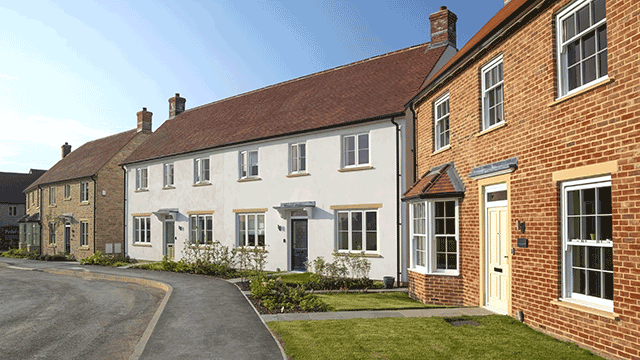Pedants believe that the millennium begins in three week’s time. To mark this, a self-confessed pedant offers the following quiz. By Peter JG Williams
1001 – 1100
William the Conqueror invaded Britain in 1066. What was his pretext?
(a) Edward the Confessor had named William as his heir.
(b) The farms of southern England were ideal for growing the hops used by the Normans for their famous beers.
(c) Rumours of gold mines in the West Country.
(d) He had intended to invade the country that is now Belgium, but was blown off course.
1101 – 1200
“Time immemorial” runs from 1189. What rule of property law makes use of this fact?
(a) The only person entitled to hunt deer in the New Forest is the monarch.
(b) A right of way exercised since 1189 cannot legally be obstructed.
(c) Two wrongs do not make a right.
(d) The surrender of a headlease granted after 1189 has no effect on the undertenants.
1201 – 1300
“Aids” were payments that a lord could demand from his tenants on certain occasions. Magna Carta limited these occasions to three. Which of the following occasions is not one of those permitted?
(a) Ransom of the lord.
(b) Knighting of the lord’s eldest son.
(c) Marriage of the lord’s eldest daughter.
(d) The monarch’s coronation.
1301 – 1400
Various rights to take produce from other people’s lands (known as “profits”) originating from the Middle Ages are still encountered. Which of the following is not
a profit?
(a) Pasture.
(b) Piscary.
(c) Turbary.
(d) Escheat.
1401 – 1500
Copyhold was a form of feudal tenure between lord and tenant that was abolished in 1922. Relics of it persist. Which of the following rights is still enjoyed by the former lord of land that was converted from copyhold to freehold?
(a) The right to mines and minerals.
(b) The right to claim the first dance with the tenant’s daughter on her wedding day.
(c) The right to one-tenth of the tenant’s potato harvest.
(d) The right to build a railway station on any railway passing over the land.
1501 – 1600
“The first thing we do, let’s kill all the lawyers” said Dick the Butcher in Henry VI Part 2. Which of these is not the punchline of a famous lawyer joke?
(a) “Professional courtesy”.
(b) “Not enough sand”.
(c) “I’ll phone a friend Chris”.
(d) “Don’t worry my son. I got him with the door”.
1601 – 1700
The large pieces of parchment upon which conveyances and other deeds used to be written (now mainly used as lampshades) are known as “indentures”. Why is this?
(a) The first line of each paragraph was indented.
(b) The top of each piece of parchment was cut in an irregular toothed shape.
(c) The scribe had to “indent” separately for each piece of parchment, in view of its value.
(d) Small tooth-shaped symbols were used at the end of each line to fill any left-over space.
1701 – 1800
The Distress for Rent Act 1737 is still on the statute books and is still used by landlords today. Why should a tenant be concerned?
(a) In certain unusual circumstances, the tenant may be required to reroof the property before giving it back to the landlord.
(b) The Act outlaws the playing of Quidditch on the premises.
(c) The Act forbids tenants to use mobile phones on the premises.
(d) A tenant who stays in his property after giving notice to quit is liable to pay the landlord twice the amount of rent laid down in the lease.
1801 – 1900
Every barrack-room lawyer knows that “quicquid planatur solo, solo cedit“. Which of the following demonstrates this rule?
(a) To every rule there is an exception, and this rule is no exception.
(b) Landlords are bound to act reasonably when considering a tenant’s request to assign a lease.
(c) A pile of stones resting on the ground can be removed, unless the stones are formed into a wall.
(d) There is one born every minute.
1901 – 2000
Lord Templeman alluded to two tools in the case of Street v Mountford in 1985. What were they?
(a) Knife and fork. (b) Fork and spade.
(c) Dish and spoon. (d) Hammer and tongs.
Tie-break question
Visitors to bird reserves can hire pairs of binoculars for a nominal charge of a few pounds, but are required to leave their car keys by way of deposit. If such a visitor decided that the binoculars were worth more than the car, and caught a bus home with the binoculars, who would then own the car and who would own the binoculars?
Answers next week.
Rules of the competition:
Eversheds will be presenting a bottle of vintage Krug champagne to the winner, who will be the person submitting the most correct answers. In the case of a tie, Eversheds and Estates Gazette will decide the winner by the most amusing (and not necessarily legally correct) response to the tie-break question (50 words max). Entries may be published by Eversheds or Estates Gazette. Anyone connected with Eversheds or Estates Gazette may not enter. Entries by e-mail to: millenniumquiz@eversheds.com to be received by Eversheds by 6pm on Thursday 14 December.
Peter JG Williams is a national property support lawyer at Eversheds









